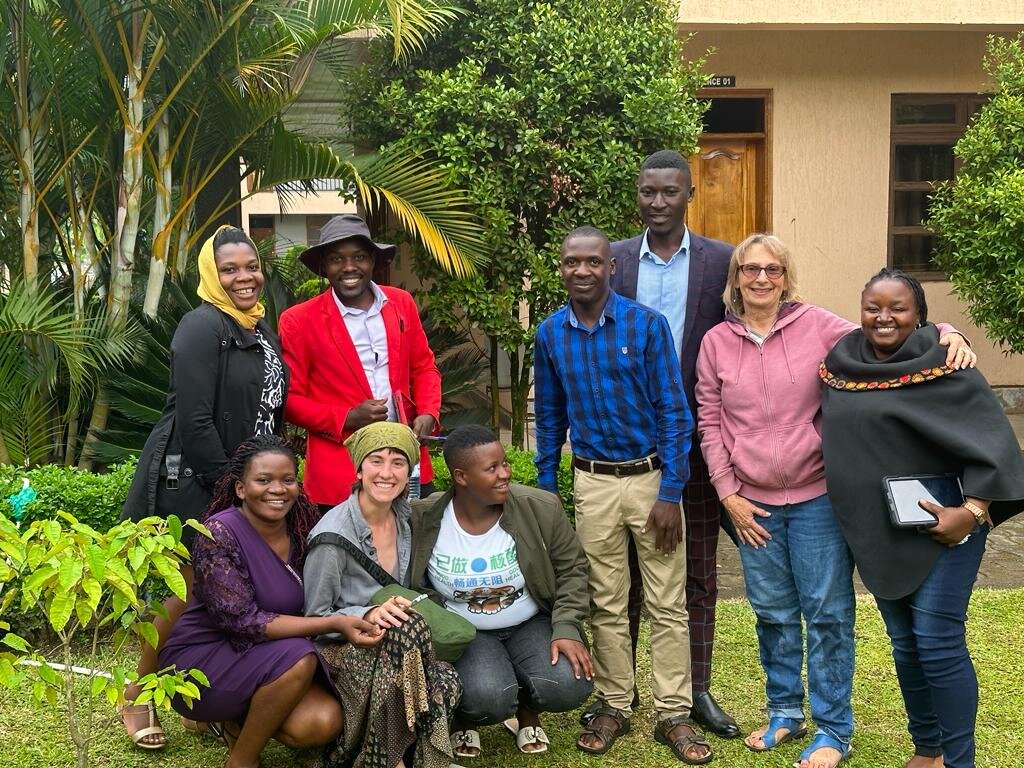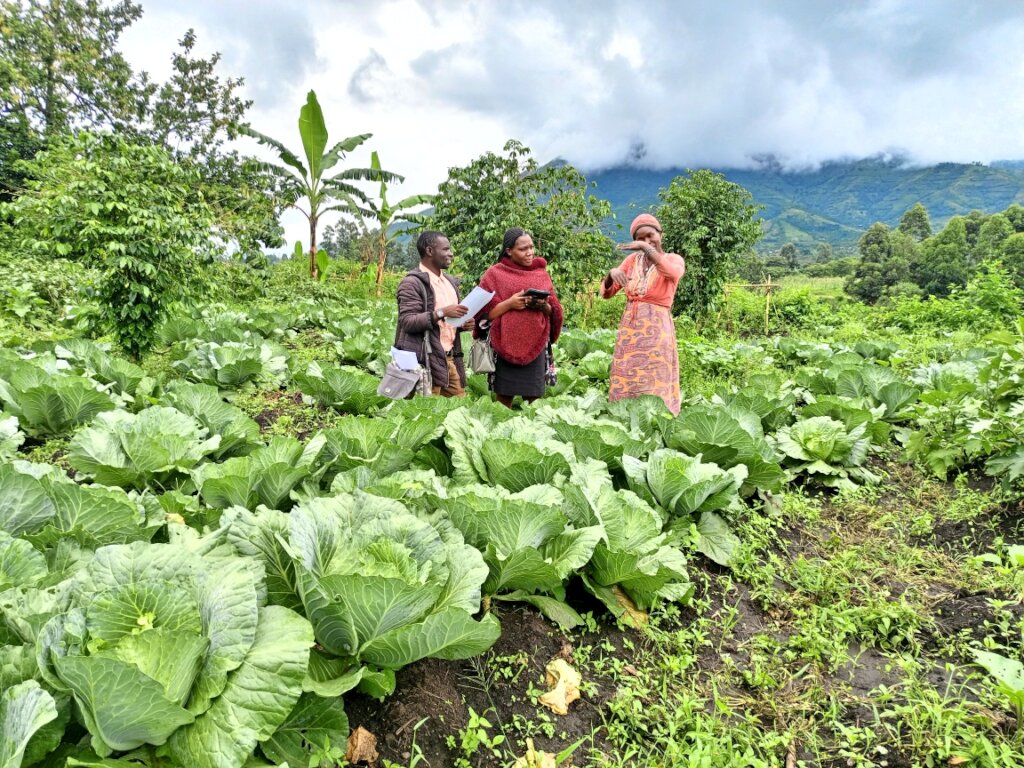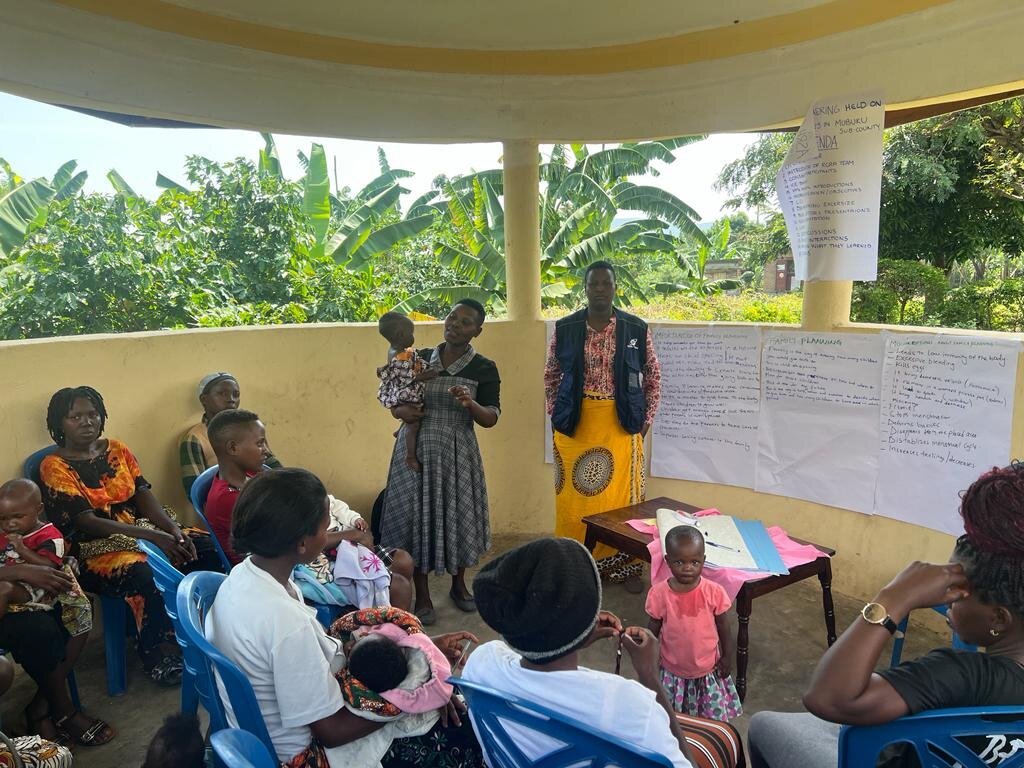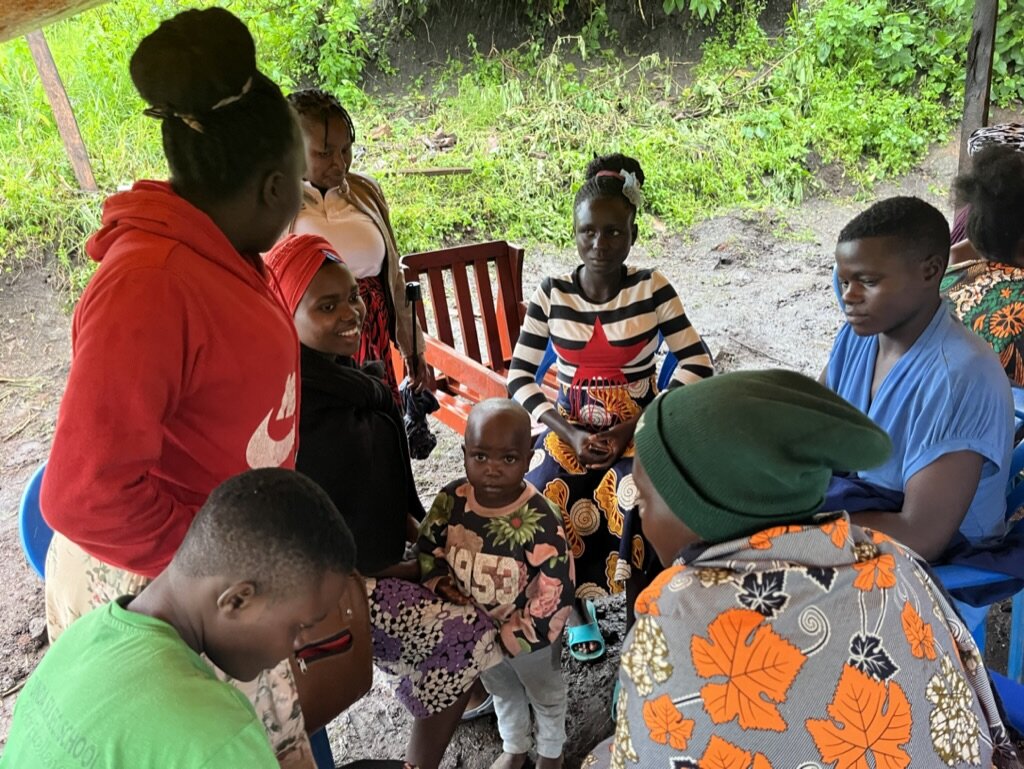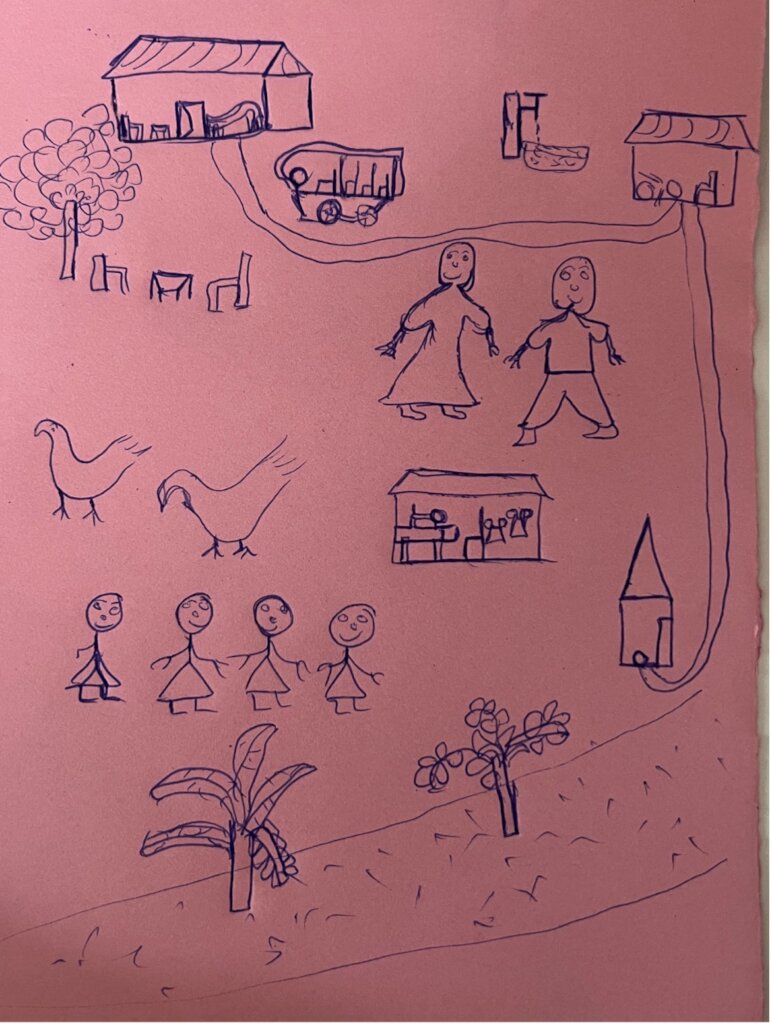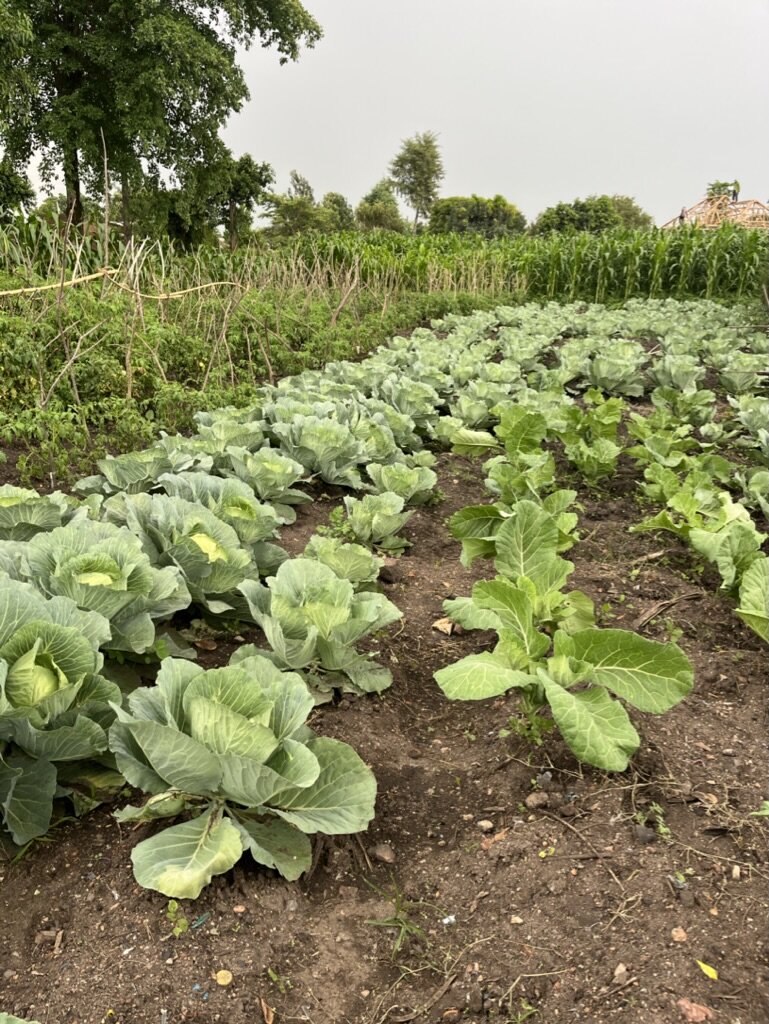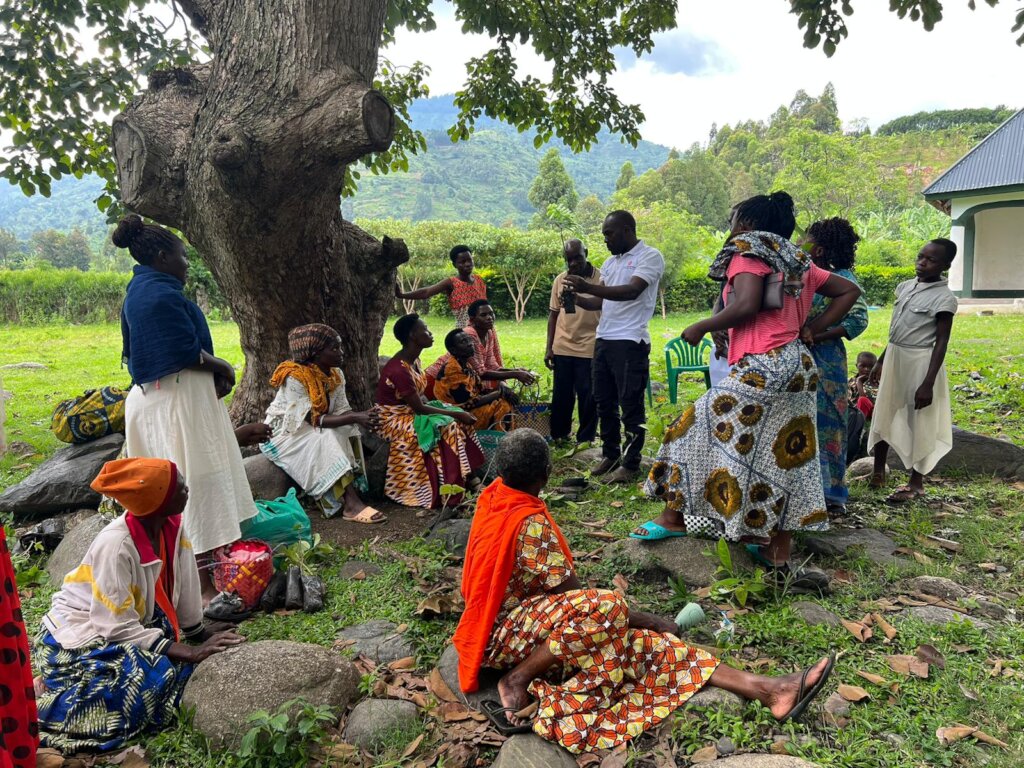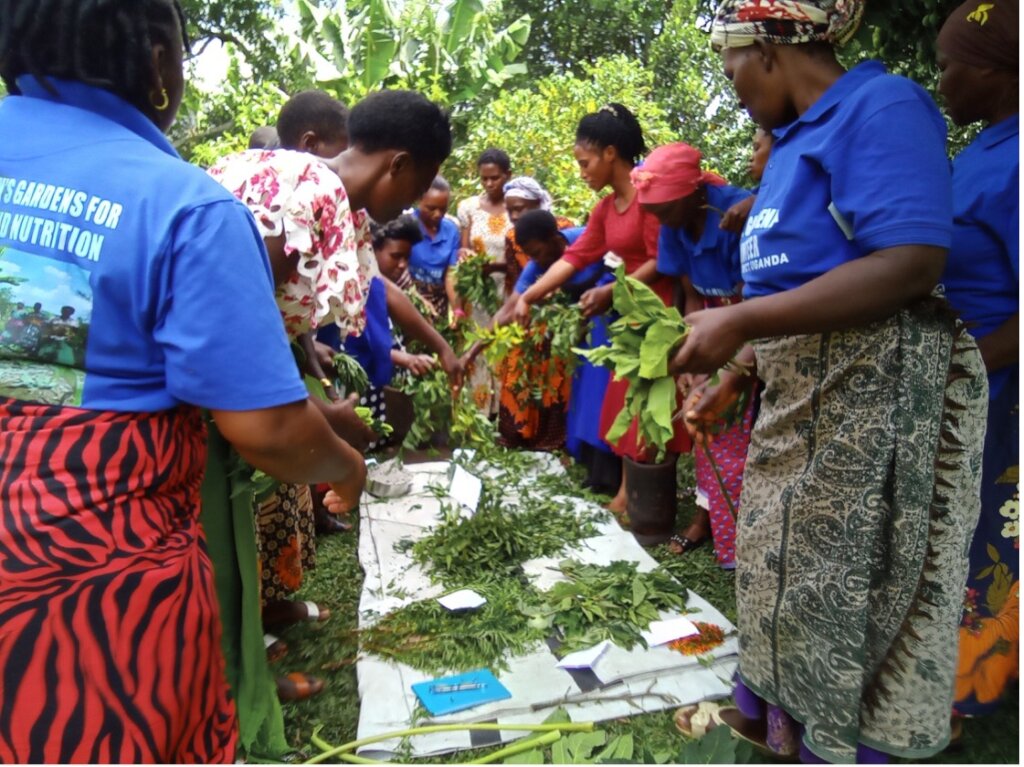By Doreen Kansiime and Robin Marsh | 1,000 Gardens Project Leader; Project Advisor
This brief report will tell you about our major Impact Study underway – providing the rigorous evidence that we need for truly understanding the impacts of organic vegetable gardening on the lives of women and their families. And we will give you an ‘inside’ look into one recent Adolescent Sexual and Reproductive Health (ASRH) Gathering for Young Mother Gardeners.
Impact Study
Three years after the start of 1,000 Women’s Gardens for Health and Nutrition, it was time to design a comprehensive Impact Study (Nov 2023-March 2024). The randomized control study will interview 100 program and 50 control households, two visits each, covering food security, nutrition, health, gardening, income generation, and family dynamic variables. The questionnaire ends with two short narrative questions looking at the influence of women-led gardening on self-confidence, and, for all, their future goals and dreams.
We are very fortunate to have two UC Berkeley students involved – Rebecca Gerny (Robin’s former student/research assistant), who traveled to Uganda with Robin in October, and is remaining with the research team through January to manage field and data collection operations; and Hamid Hashmat, a recent graduate in economics, who is working with us on data analysis. In case you did not see it, here is a link to our short ‘update’ newsletter from Rebecca and Robin: https://update-from-robin-and-rebecca-in-kasese-uganda.
Four young Ugandans – two women and two men, are our expert research assistants (RAs) in the field, all from Kasese and native Rukonzo speakers. We had an intensive training workshop in early Nov to review all of the research questions and tools, and adjust questions to make most sense for villagers (see photo below). Our WhatsApp group is a way for the RAs to report their progress for the day. This moving reflection was posted by one RA just today (01/18):
Our day went well on our end. We successfully worked on HH-08 and 277. We met a respondent who is elderly and has recently reunited with her husband after 30 years. Despite not being together for a long time, she has been actively supporting her grandchildren through a kitchen garden. She emphasized the significance of having a kitchen garden, highlighting how it has empowered her to take care of her family.
In addition to household visits, we are holding Focus Groups with randomly selected Community Gardeners, and, also conducting Market Food Availability surveys in markets used by our program gardeners to buy/sell food. All together, we hope to analyze, publish and disseminate convincing results in many venues, including back to the sub-counties where the data are collected.
ASRH Gatherings
Meet our new Community Development Office (CDO), Immaculate Nakisita, who heads the ASRH Gatherings for Young Mother Gardeners program, supported by the Packard Foundation and GlobalGiving donors. Immaculate is a young college-educated community development specialist, with recent experience in youth justice and rights outreach, especially for girls and young women. Under our guidance, she is pursuing additional training in ASRH. You can see Immaculate facilitating ASRH Gatherings in the photos below.
At each ASRH Gathering, an average of 20 adolescent mothers and their babies gather for a day of learning, sharing, food and play, focused on empowering the ‘whole adolescent’. We provide basic ASRH information, address family planning, food security and income generation concerns, and provide space for communicating their long-term dreams (see photo of one ‘dream drawing’ below) and goals. Our Young Mother Volunteer program, launching at the end of January 2024, will assist these young mothers to take the necessary steps to reach their goals with diverse individual and group activities. Below are examples of learning and sharing at one recent ASRH Gathering in Hima sub-country.
One testimonial on becoming a young mother:
My name is _______, I am 17 years old. I come from Kasojo village; I have one child. My parents could not afford to pay my school fees and provide for me the scholastic materials. I stopped schooling while in Primary 4, I stayed at home for quite a long time and felt all the boredom. While at home, I engaged in a relationship with thoughts of getting peace. I became pregnant and my parents could not take care of me, I decided to stay with my aunt, after giving birth my aunt decided to take me back to school and I am now currently in Primary 6. Some pupils call me a “grandmother” of the school, but I am determined to complete my studies no matter the age I am now.
Peer educator asks young mothers: “what is the importance of family planning to you? (ASHR Gathering, Jan 2024)
-----------------------------------------------------------------------------------------------------
In small groups, young mothers discuss, “how is vegetable gardening related to the well-being of young mothers and their children?” (ASRH Gathering, Jan. 2024)
Phase 6 Harvesting
As you can see from the photos below, Phase 6 home and community gardens were verdant and thriving these last few months with abundant rain. Gardeners are learning how to mulch deeply and build small trenches to ward off destruction from flooding. With 475 home gardens and 34 community gardens established, and perhaps half as many neighbor ‘adopter’ gardeners, we are on track for reaching our 1,000 Women’s Gardens goal. In addition, we distributed 3,000 tree seedlings (from RCRA Tree Hub, see photo below) of varied fruit species to all interested garden households, and trained them in their proper planting and maintenance. Just before Christmas, Model Gardener Volunteers attended Botanical Pesticide Formulation training (see last photo below).
Finally, we had a successful December ‘year-end’ fundraising campaign. Here is the link in case you missed that (https://please-donate-to-1000-womens-gardens-friend). We would especially appreciate anyone who is able to become a ‘monthly’ subscriber, at WHATEVER level. These monthly reminders of your support are particularly motivating, and eligible for matches from GlobalGiving!
Stay tuned for updates on our Impact Study, ASRH Young Mother Volunteers Program, and, as always, progress toward our goal of 1,000 Women’s Gardens for Health and Nutrition!
Best regards, Jostas, Robin, Doreen and Immaculate
By Doreen Kansiime and Robin Marsh | Project Leader; Project Advisor
By Doreen Kansiime and Robin Marsh | Project Leader; Project Advisor
Project reports on GlobalGiving are posted directly to globalgiving.org by Project Leaders as they are completed, generally every 3-4 months. To protect the integrity of these documents, GlobalGiving does not alter them; therefore you may find some language or formatting issues.
If you donate to this project or have donated to this project, you can recieve an email when this project posts a report. You can also subscribe for reports without donating.
Support this important cause by creating a personalized fundraising page.
Start a Fundraiser